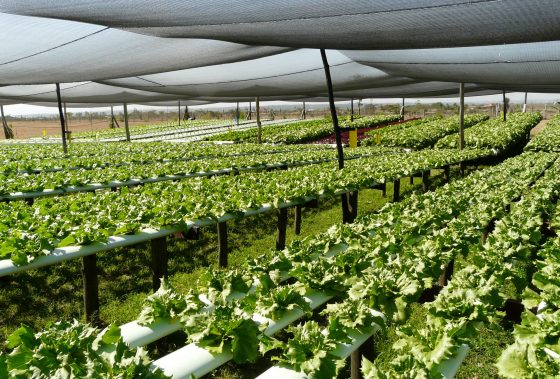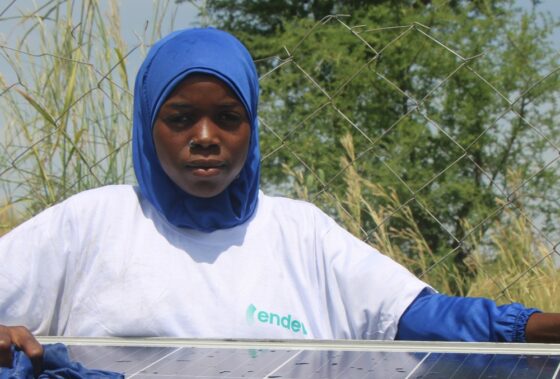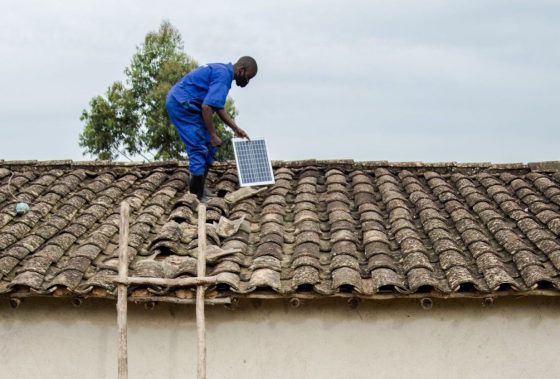
Malawi
Malawi has one of the lowest electrification rates, with over 74% of the population living without electricity, and the majority of the country relying on firewood and charcoal for cooking. In 2024, EnDev Malawi continued to expand energy access in alignment with the Malawi Government’s National Energy Compact, eCooking Roadmap, and upcoming Clean Cooking Strategy and productive use of energy roadmap. However, progress was hindered by FOREX challenges, climate-related accessibility challenges, an ongoing economic crisis, and difficult business environment, particularly affecting MSMEs.
Technologies used in this project
- Improved cookstoves
- Solar mini-grids
- Stand-alone systems
Country data
- People with access to electricity: 164,965*
- People with access to improved cooking services: 1,725,312*
- SIs with access to modern energy services: 183*
- MSMEs with access to modern energy services: 527*
- *Target achievements until December 2024
Approach
Since 2012, the programme has contributed towards achieving Malawi’s SDG 7 targets and low carbon development pathways through strengthening markets for improved cookstoves (ICS), off-grid solar (OGS) technologies, productive use of energy (PUE) products and services targeting vulnerable households, ultra- poor, semi- urban populations, and sector wide Micro, Small and Medium Enterprises (MSMEs).
Supply side capacity strengthening activities include de-risking private sector investments through Business Development Support (BDS) and Results-based Financing (RBF). The programme also prioritises awareness raising and public engagement to increase adoption of technologies and demand for products and services.
1. Cooking Component
EnDev Malawi offers business development support to private enterprises, including marketing and other tools that contribute to the strengthening of the ICS value chains, in order to facilitate the development and strengthening of market for improved cookstoves. In addition to promoting Chitofu 3in1 for smoking, frying, and parboiling fish as part of PUE, the component advocates for the use and adoption of Mayankho and Rocket stoves in social institutions specifically schools.
2. Solar Component
This component empowers small and medium-sized businesses that sell solar products grow their businesses by offering business development support. It also helps them become more technically and marketing proficient and to advocate for better policies that may help create a more equitable operating environment, increase access, and boost sales.
3. Productive Use of Energy Component
EnDev Malawi is implementing a European Union Co- Funded Putting Energy to Work component that deploys market-based approaches with targeted demand and supply side interventions, as well as strategic enabling environment measures. Along with increasing demand and awareness for PUE technologies and services on the demand side of the market, it also uses business development services (BDS) and the results-based financing (RBF) mechanism to strengthen the supply side of the market especially MSMEs in rural areas, including those in the commercial, agricultural, and other sectors.
Additionally, EnDev Malawi with Co- financing from the Global Energy Alliance from People and Planet is implementing the Catalysing Distributed Renewable Energy Solutions for Agriculture in Malawi Ag- Energy which supports rural farmers and organised farmer groups/institutions with a range of solar facilities and products.
4. Health Component
Introduced as part of the BMZ COVID 19 response, programme, the component supports the solarisation of health institutions and provision of solar powered refrigerators for vaccination cooling.
5. EnergIce Component
The Icelandic embassy in Malawi co- finances the provision of thermal energy for Social Institutions (SIs), introducing cooking shelters at health facilities and energy-saving stoves in schools. Also provides solar electrification for SIs, targeting schools and health facilities, along with operation and maintenance of systems. The component also supports the development of fuel-efficient fish processing cookstoves which are being promoted in selected fishing communities.
Learn more about EnDev´s approachImpact
EnDev remained committed to strengthening the improved cookstove sector. Business development support, including Gender makes Business Sense training, was introduced for
stove producers. In LNOB target areas, EnDev provided commissions to last-mile improved cookstove agents, trained community-based organisations as improved cookstove promoters, and supported installations of improved cookstoves at the Karonga Refugee Transit Center. To boost private sector capacity, EnDev provided tailored business development support to 25 renewable energy companies focused on solar electrification and clean cooking. This initiative aims to increase access to sustainable energy solutions by strengthening companies’ business models, investment readiness, and financial capacity. Five out of the 25 companies also benefit from additional support from EnDev’s Energy Enterprise Coach initiative.
Furthermore, EnDev contributed to strengthening the enabling environment by supporting the Renewable Energy Industries Association of Malawi (REIAMA) in developing its 2024-2028 Strategic Plan. EnDev also supported REIAMA to establish its Productive Use of Energy technical working group and host the 2024 National Energy Conference. EnDev also remains committed to its role as technical lead of the National Cookstove Steering Committee’s firewood and the newly introduced electric cooking working groups.
To ensure inclusive access, EnDev integrated a leave-noone-behind (LNOB) component, providing clean cooking solutions to recipients of unconditional social cash transfers,
targeting ultra-poor and labour-constrained households across five districts.
In 2024, EnDev Malawi announced its first Higher-Tier Cooking (HTC) results-based financing initiative, generating strong interest from companies to supply pellet stoves and induction cookers for the urban population nationwide.
Additionally, EnDev continued implementation of several co-financed initiatives including the Demand-side Subsidies (DSS) Component (DGIS), AgEnergy (GEAPP), Putting Energy to Work (EU), and EnergICE (Embassy of Iceland).
Meanwhile, the Energising Health intervention officially concluded after enhancing energy access in 237 health posts and health centres in 12 districts across the country. The
equipment was officially handed over to the Government of Malawi.
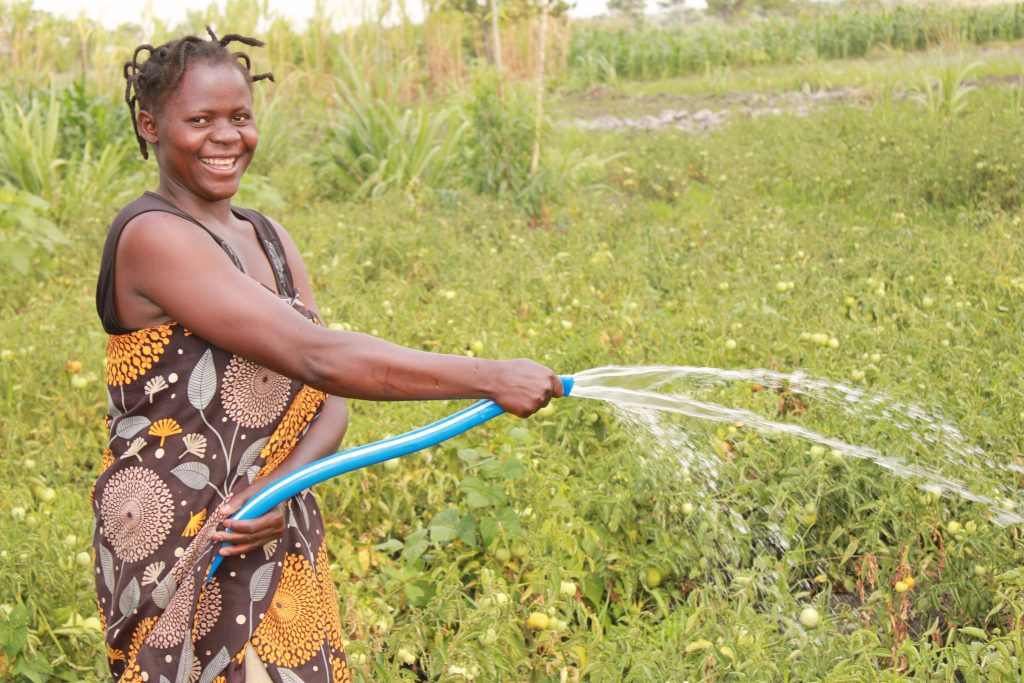
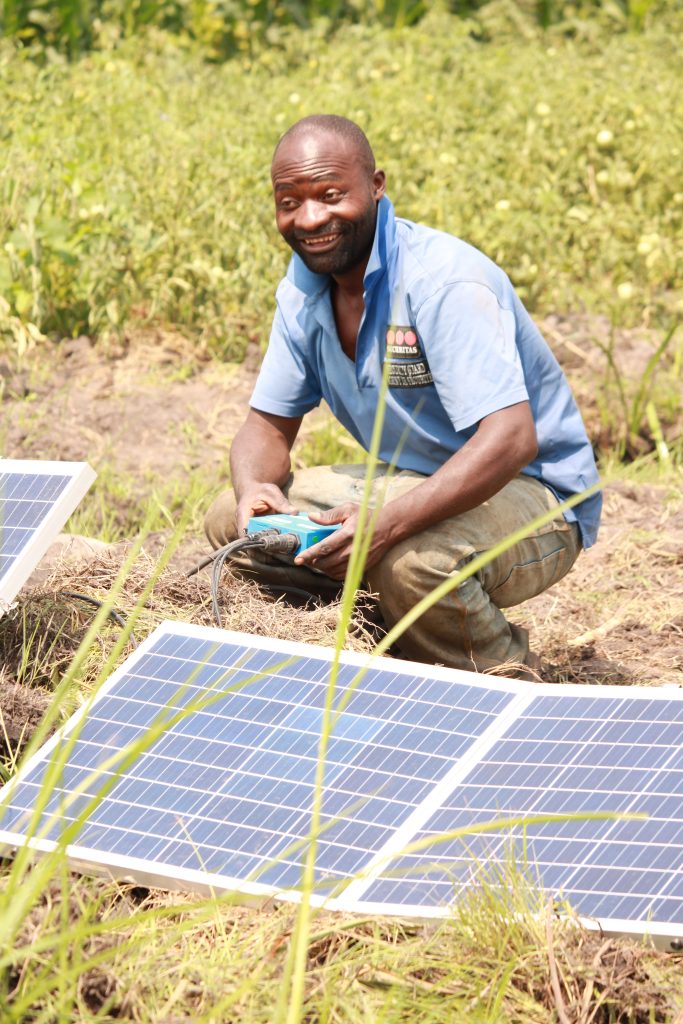
Energy Access through Demand-Side Subsidies
Funded by the Directorate-General for International Cooperation (DGIS) of the Netherlands Ministry of Foreign Affairs, EnDev’s Energy Access through Demand-Side Subsidies component seeks to develop and pilot Demand Side Subsidy (DSS) mechanisms to facilitate access to modern energy services for vulnerable populations who are currently unable to access commercial off-grid solar and cooking markets.
In Malawi, the DSS pilot aims to bridge the affordability gap for the poorest sections of society, as classified by the Government of Malawi’s United Beneficiary Registry (UBR). The pilot will utilize a results-based financing (RBF) modality and operate within select rural districts.
Further information
- For more information on the energy situation in Malawi see energypedia.
- For more information about accelerating access to sustainable energy see the english or deutsch page.
- For more information on the RBF project, visit also the United Purpose website.
